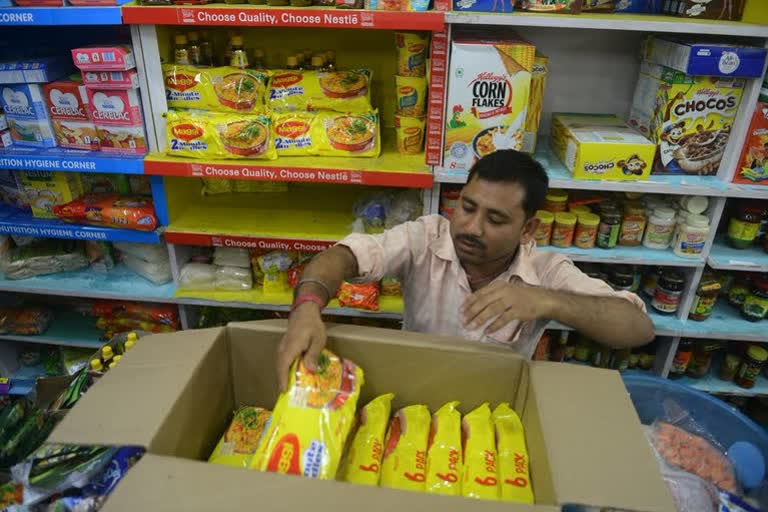Business Desk, ETV Bharat: The Indian retail sector underwent a mammoth transformation in the year 2020.
Whether it was organized retail like malls or supermarkets or the unorganized local market of the country, everyone had to tweak their business models to survive.
During the course, while some thrived, some others had to give in to bigger or better players.
Here’s a look back at some of the key trends in the Indian retail sector that emerged in the year 2020.
Year of big deals
2020 was marked by some of the biggest deals that the retail sector had seen in recent years. One of them was obviously the Mukesh Ambani-controlled Reliance Retail buying Kishore Biyani’s Future Retail, India’s second-largest retailer, for Rs 24,713 crore.
Interestingly, the deal brought to the forefront the war among some of the biggest conglomerates for India’s booming retail market that is estimated to reach $1.3 trillion by 2025.
E-commerce giant Amazon strongly contested the Ambani-Biyani deal, claiming it violates its deal with Future Group signed in 2019.
The matter is currently being heard in national and international courts and the outcome would play a big role in determining who will garb the lion’s share of the Indian retail market.
Besides that, earlier in 2020, Walmart-owned online retailer Flipkart had also bought a 7.8% stake in Aditya Birla Fashion and Retail Ltd.
The rise of kirana stores
The coronavirus-induced lockdown turned out to be the biggest nightmare for retail sector as malls and markets were shut across the country for months and people were restricted indoors.
In those times, the local mom-and-pop stores, or the kirana stores as they are popularly called, came to the rescue of the people for essential grocery supplies.
No wonder, India’s most valued firm Reliance Industries Ltd chose these humbler shops as partners to create the world’s largest online-to-offline e-commerce platform in the form of JioMart. An online-to-offline (O2O) business platform is where customers place an order online, but purchases the products offline (from nearest local retail stores).
Undeniably, the pandemic also fastened the pace of digital adoption by kirana stores. Local store owners are now keen to partner with online delivery and supply platforms as they feel it can help them grow and tide over in these testing times.
Online shopping picked pace
As lockdowns restricted movement and social distancing became a norm, online services across sectors boomed, and retail was no different.
Consumers took to e-commerce as fish takes to water. From essentials to non-essentials, shopping websites saw a huge spike in demand in the year 2020 and widened their reach to tier II and tier III cities.
Customers purchased almost everything from apparel, jewellery, shoes to consumer electronics, durables, IT and even cars and property online, as physical retail stores remained closed for most part of the year.
Deloitte India Partner Rajat Wahi told PTI that e-commerce, which accounted for less than 3% of total Indian retail in value terms leading up to March 2020, has almost doubled share across most categories, and may end the year at 6-7% of the total retail market.
Now, as the country prepares to vaccinate nearly 300 million people in coming months, the industry expects some revival of the offline retail channel, but complete recovery might only happen by the end of next year.



